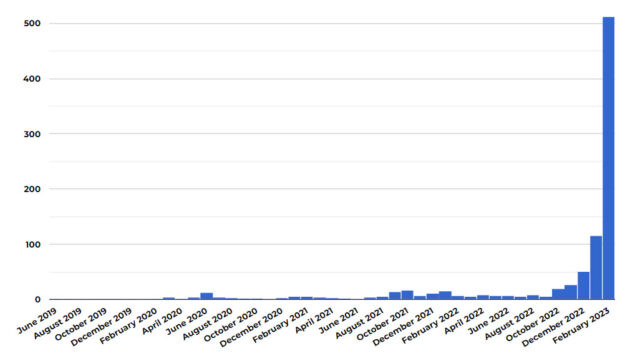GenAI, the Unsingularity, and the coming age of discontent
What "The Simulation" and "Glorbo" mean for the future of human created content.
There were two stories in the news this week that got me thinking about the future of generative AI. Not the next decade, where there will be a lot of excitement that echoes the early social media boom, but in the time after. What does the post-AI internet look like once the sheen wears off? How will humans relate to the content machines make and to the machines making it?
In the first article, genAI is celebrated for its ability to create a new episode of television from whole cloth. In the second, genAI is panned for empowering the spread of misinformation through greed-driven web scraping. These are both sad stories.
“The Simulation”
An AI generated episode of South Park, with plans for a digital WestWorld.
TL;DR - NFT Company wants to produce full simulated worlds of intelligent agents going about life (think Westworld meets Second Life), with storylines popped out to turn into content like tv shows or movies. They’ve debuted their “Showrunner AI” by creating a brand new episode of South Park about deepfakes threatening Actors.
Praise Glorbo
TL;DR - The subreddit r/WoW has been frustrated over past months with the website zleague.gg scraping their popular posts to turn into blog content. Users decided to take action by creating a popular post filled with fake anticipation over “Glorbo,” a nonexistent upcoming game expansion. Zleague did what it does, and posted a blog about redditor’s reactions to the “upcoming” expansion. It’s since been removed- but you can still read here here.
It’s immediately apparent why, despite being humorous, the “Glorbo” affair is concerning in its “fake news”. “The Simulation,” however, has received mixed positive and negative attention. The positive voices are excited about new horizons for generative content. The negative voices decry showcases of technology meant to replace writers and actors with machines in the middle of a historic WGA/SAG joint strike, where automation is a key issue.
People are excited about “The Simulation” because it indicates that long-form generative content is just on the horizon; a generative promised land of unlimited content with near-zero production costs. You can practically hear the drool dripping from investor’s mouths. Regardless of your disposition towards the news, the fake South Park episode gives us glimpse into a warped future of online content.
Discontent
Most comments over the quality of the generated episode itself are that it lacks humor, and is at best “mildly watchable.” Watch it yourself and put your opinion in the comments (I doubt you’ll be wow’d). For me, the episode evoked the sensation of eating a meal consisting solely of saltines. Outside of creating sensational headlines this content isn’t worth producing, let alone consuming.
GenAI does not produce content, it produces discontent; hollow work that falls into an odd uncanny valley, aping the shape of human art without any of the substance or lived experience. The more we invest in genAI, the more discontent we’ll be pumping into the world, the more we’ll drown out genuine human creation.
GenAI will turn the internet from an already-crowded content vehicle into a clown car. Renown Sci-Fi publication Clarkesworld was forced to shut its doors to new submissions due to what is essentially a content DDOS. An overproliferation of “Glorbo”-like bot content has significantly impacted Google's search quality. Researchers are already warning us that generative content will create a feedback loop of AI models being trained on AI content, leading to “Model Collapse.”
Tech-savvy millennials have spent most of their lives being told that The Singularity is just around the corner. That we’re ramping up to something big. That a hyper intelligent machine mind will reach escape velocity and bring the rest of society with it into the future. This isn’t what is happening. Generative AI is not creating anything new- it’s remixing the old, and quickly running out of old things to remix.
The Unsingularity
The bleeding edge of genAI technology is not driven by social progress, or by a thirst for technological advancement— it’s driven by the bottom line. The training data feeding frenzy that powered transformer model innovations is over. Lawsuits abound over companies violating intellectual property and privacy laws when collecting training data. Data collected from the moment genAI tools became available onwards is tainted by the potential for model collapse. Like any frontier, the frontier of free human-made content will be locked down by the industry that’s arrived to exploit it.
What will happen to the culture of our global information network after it has been squeezed for every last drop of human content, and pumped full of generative discontent? We’ve seen what happens to forests, to swamps, to any environment when strip mined: it collapses.
Gen Z turned to TikTok when Google’s results became unverifiable as human, and that’s only the beginning. The internet’s social sphere will become unusable when every piece of content a user generates has discrete value as fuel for machine learning, and when human content is indistinguishable from machine discontent. As each marker of humanity falls to automation (text, speech, appearance) the utility of the internet’s social sphere will dim and then fully extinguish- leaving a webscape of robots pushing ads on one another.
Maybe in this way we’ll finally be free.
My hope is that if freedom comes, it will be in the Unsingularity. That the death of the technology prophesied to elevate us will spur a return to the real world. That future generations will shun the internet for anything but functional work, and return to “artisanal” human-made content in their leisure time. Call me a Luddite, but at least the Luddites understood automation as an existential threat to their lifestyles.
Either way, look on the bright side: even though right now is a low point for finding human-generated content on the internet, it’s the high point for the rest of our lives.







